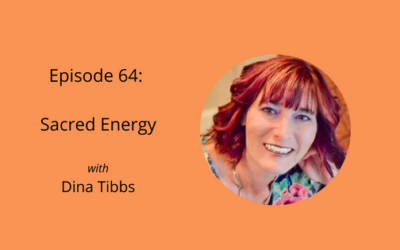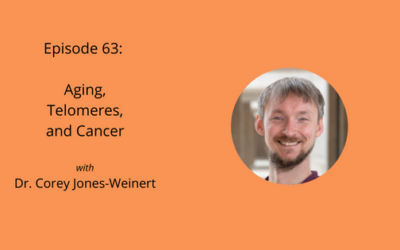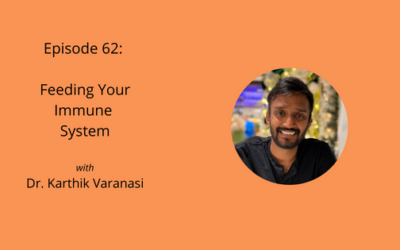Something that has been on my mind for most of the last year is how I am leaving a legacy. Not everyone is fortunate to leave a huge fortune (or even a little fortune) and I don’t think our legacy is only about the monetary value that we leave behind. I believe part of our legacy could be something less tangible, but no less important.
“The legacy we leave is the life we live.”
~ Michelle Obama
In her book Becoming, Michelle Obama wrote, “the legacy we leave is the life we live.” I think what that means to me is that we are examples during our lives and in our departing of the values humans should live by, or at the very least the values that are important to us.
Part of leaving a legacy can be an ethical will
I learned about something called an Ethical Will some time ago and became very interested in it. Long before I knew what it was, when my paternal grandmother was turning 100 years old, she was in the hospital where I worked and I had come to have lunch with her. I remember I asked her, “Grandma, you’re turning 100 soon, what are the life lessons you have learned, and what wisdom could you pass on to me?” In her usual humility, she asked rhetorically, “what life lessons have I learned?”, and then proceeded to enlighten me with her hard-found knowledge and wisdom. Even though I didn’t know it at the time, she had left me (and the rest of my family) an informal, verbal ethical will. It was her way of leaving a legacy to the people she loved most.
What is an ethical will?
An ethical will is a written document passed down from one generation to the next of your ethical and spiritual values, guiding principles, memories, and wishes for your family members. It is somewhat similar to a Legacy Letter, but different in that a legacy letter can be left to anyone – a neighbor, friend, or community. It won’t help your family pay the bills, but it will answer the question, “what would so-and-so do in this situation, or what are the values by which I should live my life?”
Sharing Your Values Through an Ethical Will
In the process of writing an ethical will, it is appropriate to take an in-depth look at your life to understand what are your guiding principles and values you hold and live your life by? You could say it’s like asking what is the meaning or purpose of life. I think it’s more than that because once you figure out what that is for you, there will come to light a series of values that fit with that meaning or purpose. For example, if you decide the meaning of life is to be a good person in the world, you then have to espouse what being a “good person” is – kind, generous, true to your word, trustworthy, etc.
Communicating My Values
For example, one of my values is to be non-judgmental, but I recently went to a funeral service and someone showed up in hot pink yoga pants. I instantly found myself judging that person because it’s not how I was taught and not something I would do. And then I quickly realized my friend who had passed would’ve just been happy her friend came to pay her respects. I caught myself and let it go. And we all do this.
Another one of my values is health. I will do whatever it takes to be healthy. I will eat healthy food and forego sugary treats (most of the time), I will exercise and stay fit, and I prioritize my sleep. And as much as I value clean, pesticide-free food, and I don’t have a green thumb and find gardening a daunting task because I’m intimated or afraid I will do something wrong. It’s okay to say I want to be healthy and eat well, so I will buy organic food (that someone else has grown). Eating well is different from gardening well.
Another value of mine is learning and self-improvement. I say them together because I believe once we know better, we do better, and I’m a life-long learner. I also believe we are all a work in progress. Some of us progress slower than others, but we all grow throughout our lives. One of my favorite ways to learn is from people. My maternal grandmother was a great storyteller. She didn’t weave tall tales, she didn’t tell fiction, she very much believed in truth-telling, and she had a knack for making past events captivating and memorable. Maybe that’s why I love listening.
And finally, gratitude. I’m grateful for all that is good in me and all that is imperfect in me. It makes me who I am. And it makes you who you are. I’m grateful for my family and the people I call friends, for meaningful work, and for the opportunity to make a difference in the lives of others and my community.
What legacy are you leaving?
Take a moment to look at the list attached and pick your top five (or ten) values. I’m curious – about the values you picked – drop me a line and let’s start a conversation! You can comment below.
Here are some of my favorite moments from this episode:
- 2:00 What is the legacy we leave?
- 3:30 What are the values you live your life by?
- 4:14 To garden or not to garden…
- 7:38 The Ethical Will.
- 11:41 Don’t be judgmental.
- 14:22 Be healthy no matter what it takes.
- 16:15 We are all a work in progress.
- 19:10 Don’t take things for granted.
Links mentioned in this episode:
- Ethical Wills by Barry K. Baines
- EWG Dirty Dozen
- EWG Clean 15
- Values Checklist
Subscribe & Review in iTunes
Not subscribed to the podcast yet? Subscribe today so you don’t miss out on upcoming new content! Trust me, this is stuff you’re not gonna wanna miss! Don’t know how to review a podcast? Check out this article I wrote about rating and reviewing a podcast.
Want more?
If you’re stressed about what to eat check out episode 34 with Cathy Leman, RD, or episode 35 where I talk about food rules vs. food values. Episode 19 and episode 30 were about balancing components of an anti-cancer lifestyle. Episodes 25, 31, and 32 were about helping you find ways to heal your soul through Reiki and healing touch, writing, and art therapy. Funny episode 16 with Dr. Shari Fox.
Spread the love!
Share this blog, podcast, or email musings with your friends and family.









